- ALL SERVICES
- • Salesforce Consulting Services
- • Managed Services
- • Simplification of Interfaces
- • Data Migration and Processing
- • Architectural Solutions and Scoping
- • Code Review, QA and Support
- • Applications Development
- • Pre-sales and Solutions Consulting
- • Technical Audit and Support
- • Custom Applications Development
- • AI Apps
BLOG
KEY SALESFORCE BENEFITS FOR HEALTHCARE
• Date: August 2023 •
Estimated reading time: 5 minutes
Estimated reading time: 5 minutes
During the peak of COVID-19, the importance of a streamlined workflow that would make the most efficient use of healthcare resources such as medicines, equipment, and facilities became obvious to the majority of hospitals and medical centers.
At the same time, patients' expectations and need for high-quality care keep growing. Managing patients with legacy systems or manually puts the whole system at risk.
That's why automating repetitive and manual flows is a high-priority task. Healthcare automation includes diagnostic activities, administrative tasks, and patient data processing in order to gain a competitive edge in the industry and provide a better customer experience.
The healthcare automation market is estimated to reach $90.88 billion by 2032.
Source: precedenceresearch.com

Healthcare Automation Market Size, 2022-2032 (USD, Bn)
In this article, we will dive into some of the flows that can be optimized through automation on the example of Salesforce CRM.
Contents:
Benefits of Business Automation in Healthcare
Automated systems can do more in a shorter amount of time and with fewer resources letting the specialists do exactly what they need to do — focus on high-quality care. Here are the main improvements automation can bring:
1. Streamlined data collection and organized document storage
Automating healthcare workflows through data validation eliminates the possibility of data inaccuracies and typos. Furthermore, documents can be sorted and archived automatically, allowing for rapid retrieval of records.
2. Less time spent on paperwork, more focus on patients
Automation doesn't mean only reduced operational costs (which is definitely true), but also reduced administrative tasks, more accurate procedures, focus of specialists on their skilled work, and less stress and burnout connected with mundane tasks.
3. Increased transparency & security
Automated systems can give a detailed audit trail of all actions conducted, which is critical in a regulated industry like healthcare. Furthermore, automated systems are frequently outfitted with additional security features like encryption and identity verification, which can protect patient data and lessen the risk of data breaches.
4. Enhanced patient experience
Automation can help facilitate deeper relationships between healthcare providers and patients through tailored Remote Patient Monitoring (RPM) solutions that include telehealth features. Automated notifications and reminders for patients help them remember appointments and allow for instant appointment cancellation.
5. Reduced chance of error
The cost of a mistake in medicine is enormous. Automated systems for giving prescriptions for medicines and data storage can significantly reduce the likelihood of errors, enabling healthcare providers to make informed decisions based on accurate data.
Salesforce Use Cases: Health Cloud
Salesforce CRM in Healthcare has dramatically improved how healthcare providers work, how employees work together in hospitals, how patients and healthcare experts communicate, and how hospitals manage administrative duties.
Let's take a look at the key benefits of using Salesforce Health Cloud in the healthcare industry.

Salesforce Health Cloud Interface
1. Patient focus and 360-degree view
Salesforce provides a 360-degree view of patients, allowing clinicians to better understand their needs and prioritize care. They can also quickly see current health status, history of visits and illnesses, medications taken, and more. Health Cloud can also store comprehensive patient profiles, including demographic information, health history, and lifestyle data.
Example. A large hospital can use Health Cloud to centralize patient data, which can help deliver the right personalized care. Doctors and nurses can view a patient's complete medical history, which improves decision making and reduces the risk of errors.
2. Real-time interaction and Telemedicine
Salesforce Health Cloud can connect with telemedicine platforms to provide remote healthcare services. Patients will be able to receive medical advice in real time. This will allow more people to access health care, especially for patients in rural or underserved areas.
Example. A clinic in a larger city can use Health Cloud to provide virtual consultations in rural areas. This will allow patients to receive care without leaving their homes, reducing travel time and costs.
3. Improvement of service quality
Salesforce Health Cloud can significantly improve the customer experience in healthcare centers by connecting the customer and the healthcare provider.
Example. A healthcare provider can use Health Cloud to send personalized health advice and appointment reminders to patients. Patients can also use the platform to access their medical records, ask questions, and leave feedback.
4. Collaboration of doctors for the right treatment
Salesforce Health Cloud interacts with current electronic health records (EHRs) to offer a centralized view of all tasks and goals associated with different treatment plans. Health Cloud can greatly improve the treatment process by enabling secure collaboration and communication between different hospitals and physicians, which is especially beneficial for patients with complex medical needs.
Example. A team of specialists can use Health Cloud to collaborate on patient care. For example, a surgeon and a cardiologist can share patient data and treatment plans, ensuring consistent and comprehensive treatment, taking into account all nuances.
5. Possibility of data analysis
Analytics can be a powerful tool for improving medical outcomes. You can use Salesforce Health Cloud to find patterns and trends in patient data and analyze and manage the health of an entire population.
Using Health Cloud analytics, trends and risk factors can be identified, providing preventive care and efficient resource allocation.
Example. The Department of Public Health can use Health Cloud to track the prevalence of an infection in a specific region. Interventions could then be targeted at high-risk groups, reducing the duration and spread of the disease.
Download Nordic Health Group Case
Type in your existing business email address, and receive the PDF version of the Nordic Health Group Case Study to read when you have time.
By submitting you agree to receive a newsletter from Twistellar. You can unsubscribe anytime.
To Wrap Up
Healthcare providers strive to provide high-quality services. Salesforce Health Cloud makes this easy by providing a comprehensive 360-degree view of the patient. This enables healthcare companies to meet the expectations of today's patients by using intelligent data throughout the entire healthcare journey.
Feel free to contact us for more information on how to create an amazing customer experience for your business.
Our Best Articles and Salesforce Overviews
Feeling like teaming up with us at Twistellar? We are excited too! Whether you'd like to customize your org, build a bespoke application or integrate a third-party tool, Twistellar is ready to help you.
Get in touch to discuss your Salesforce ideas!



